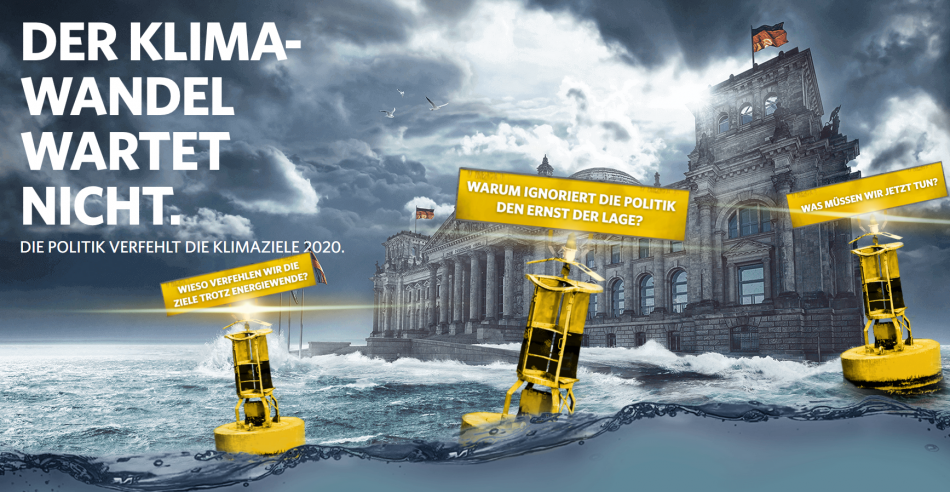German-Austrian power price zone to split / Gas sector takes on coal
Federal Network Agency
Germany plans to split the common power price zone with its neighbour Austria in July 2018, according to a press release by the federal economy ministry (BMWi). This did not mean a split of the countries' power markets, said state secretary Rainer Baake. The Federal Network Agency (BnetzA) today called on German power grid operators to prepare for “a functioning capacity management as from 3 July 2018” at the German-Austrian border. This step was necessary, because “electricity exports to Austria are increasing and rapidly leading to cases of network congestion between Germany and Austria,” said BNetzA president Jochen Homann in a separate press release. So far, power trade has not developed in coordination with the transport capacities actually available at the border. In the long term, electricity grids in Germany, Austria, Poland and the Czech Republic won’t be capable of transporting all the electricity exchanged, writes BNetzA. Power trade between the countries would continue to be possible in large quantities, but trading peaks would be capped once the system was in place in 2018. BNetzA says that Austrian involvement in the preparations would be “useful and welcome.” Austrian regulators opposed the plans and called them "neither necessary nor justified" in a press release.
Read the BNetzA press release in English here, the BMWi press release in German here and a press release by Austrian regulator E-Control in German here.
For background read the CLEW articles Loop flows: Why is wind power from northern Germany putting east European grids under pressure? and Europe's largest electricity market set to split.
Also read a Reuters article on the BNetzA announcement.
dpa
The Bavarian Chambers of Commerce and Industry (BIHK) and the Austrian Economic Chambers (WKÖ) issued a joint statement against a possible split of the German-Austrian power price zone, reports news agency dpa. “These plans endanger supply security in Bavaria, lead to high electricity prices and thus harm our businesses,” said BIHK president Eberhard Sasse.
Read the article in German here.
Environment Ministry
The approval of the government’s long-awaited Climate Action Plan 2050 in cabinet in the coming weeks remains uncertain, according to the environment ministry. “We would like to have a Climate Action Plan before the start of the COP 22 in Marrakesh, but not at any price,” State Secretary Jochen Flasbarth said at an event on Thursday evening. “Let’s see what the coming days will bring.” He added it was preferable to have an ambitious plan at a later date instead of an early plan that was weak, adding that Environment Minister Barbara Hendricks was not willing to send a weak plan to cabinet for approval.
Earlier, more ambitious drafts of the environment ministry’s Climate Action Plan 2050 had been watered-down by the economics ministry and Angela Merkel’s chancellery and the plan currently faces strong opposition from conservative members of parliament. The main points of contention include possible emission reduction targets for each sector (energy, transport, industry, buildings, agriculture), and establishing a commission that would deal with the question of a German coal exit.
Also, read the CLEW article Deep divisions persist over German climate plan, coal exit and the CLEW factsheet Germany’s trimmed-down Climate Action Plan for background.
manager magazin
The German gas sector initiative “Future Natural Gas” has started a PR campaign criticising the high-emissions coal industry, petrol and diesel cars, and positioning natural gas as the cleaner alternative, reports Nils-Viktor Sorge for manager magazin. “A gas sector campaign against another industrial source is certainly something completely new,” a spokesperson of the Federal German Association for Brown Coal (DEBRIV) told manager magazin. The gas initiative placed ads in big German newspapers and created a campaign website stating, among other things,: “Burning lignite is the dirtiest and most climate harmful way of generating electricity.”
Read the article in German here and find the campaign website in German here.

Frankfurter Allgemeine Zeitung
The January-September interim report by Swedish utility Vattenfall showed that the company’s prospects have improved after the sale of its eastern German lignite operations to Czech EPH, writes Andreas Mihm in the Frankfurter Allgemeine Zeitung. Profit after tax was burdened by low wholesale power prices, which resulted in a loss of 2.2 billion euros in the first nine months of 2016. Excluding lignite operations, the company reported a profit of 183 million euros until September, while it had reported a one billion euro loss in the same period last year, according to Mihm. “The sale of the lignite operations was a major step in adapting Vattenfall’s operations to new market conditions and a long-term sustainable energy system,” said Markus Hall, president and CEO of Vattenfall, in a press release.
Find the Vattenfall press release on the Q3 interim report in English here.
For background, read the CLEW article Czech utility takes over Vattenfall’s German lignite.
WirtschaftsWoche
The introduction of auctions for wind power support with the recent Reform of the Renewable Energy Act (EEG) will lead to more turbines being built in German forests, writes Andreas Macho in WirtschaftsWoche. Only the most cost-effective wind parks would receive government support, so turbines would be built in the windiest parts of the country, according to Macho. “Windy high-altitude mountain ridges in central and southern Germany are exclusively located in forest areas, so one must build predominantly there,” Frank Groß of the German Wind Energy Association (BWE) told WirtschaftsWoche.
For background, read the CLEW dossier The reform of the Renewable Energy Act.

